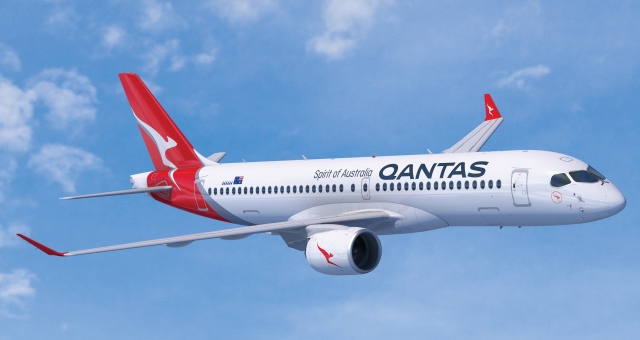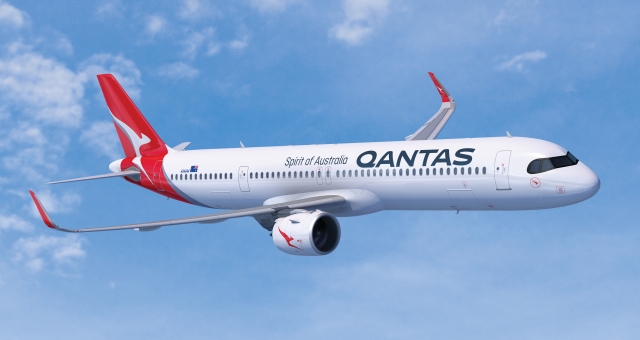Qantas has selected Airbus as the preferred supplier of new narrowbody aircraft over the next decade, with the Airbus A320neo and Airbus A220 families set to join the Flying Kangaroo’s fleet.
The order is a massive win for Airbus over rival Boeing’s 737 MAX aircraft and includes a firm commitment for 40 aircraft – 20 A321XLR (extra long-range) and 20 A220 aircraft – and options rights for a further 94 Airbus jets over a 10-plus year delivery window.
The new Airbus single-aisle jets will replace Qantas’ existing Boeing 737-800s and Boeing 717s as the aircraft are gradually phased out.
Qantas’ order is in addition to Jetstar’s existing agreement with Airbus for over 100 aircraft in the A320neo family.
Part of this new deal also includes combining these two orders so that the Group can draw down on a total of 299 deliveries across both the A320 and A220 families as needed over the next decade and beyond for Qantas, QantasLink and Jetstar, according to the carrier.
Qantas Group CEO, Alan Joyce, said once finalised, this will represent the largest aircraft order in Australian aviation history.
“This is a long-term renewal plan with deliveries and payments spread over the next decade and beyond, but the similarly long lead time for aircraft orders means we need to make these decisions now,” he said.
“Qantas is in a position to make these commitments because of the way we’ve navigated through the pandemic, which is a credit to the whole organization.
“This is a clear sign of our confidence in the future and we’ve locked in pricing just ahead of what’s likely to be a big uptick in demand for next-generation narrow-body aircraft. That’s good news for our customers, our people and our shareholders,” Joyce said.
He said the initial firm order concentrates on the larger, single-aisle A321XLR, and the mid-size A220-300 with purchase right options for the smaller A220-100, giving Qantas a fleet mix that can deliver better network choices and route economics.

The XLR can carry around 15 per cent more passengers on each flight than the airline’s existing B737-800s, making it well suited to busy routes between capital cities like Melbourne, Sydney and Brisbane, according to Qantas, and its longer range means it can also be used to open up new city pairs.
The small and medium size A220s provide the Group with flexibility to deploy these aircraft throughout most of its domestic and regional operations, according to the carrier, adding they could be used during off peak times between major cities and on key regional routes to increase frequency.
“The Airbus deal had the added advantage of providing ongoing flexibility within the order, meaning we can continue to choose between the entire A320neo and A220 families depending on our changing needs in the years ahead,” Joyce said. “The ability to combine the Jetstar and Qantas order for the A320 type was also a factor.
“The A320 will be new for Qantas Domestic, but we already know it’s a great aircraft because it’s been the backbone of Jetstar’s success for more than 15 years and more recently operating the resources industry in Western Australia.
“The A220 is such a versatile aircraft which has become popular with airline customers in the United States and Europe because it has the capability to fly regional routes as well as longer sectors between capital cities.
“The combination of small, medium and large jets and the different range and economics they each bring means we can have the right aircraft on the right route.
“For customers, that means having more departures throughout the day on a smaller aircraft, or extra capacity at peak times with a larger aircraft. Or the ability to start a new regional route because the economics of the aircraft make it possible.
“We have some exciting plans for the next-generation cabins we’ll put on these aircraft, which will offer improvements for passengers that we’ll share in coming months.
“Importantly, these aircraft will deliver a step change in reducing fuel burn and carbon emissions compared with our current fleet, which gets us closer to the net zero target we’ve set,” Joyce said.
The order is set to be confirmed in the 2022 financial year.

